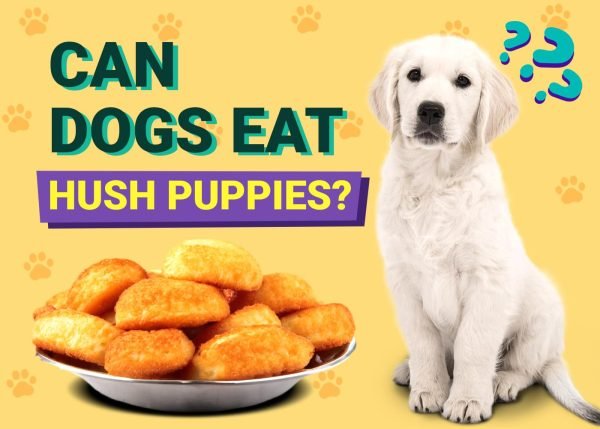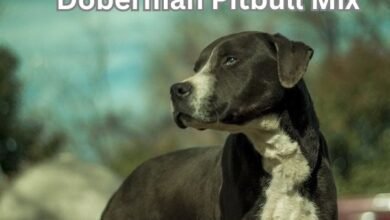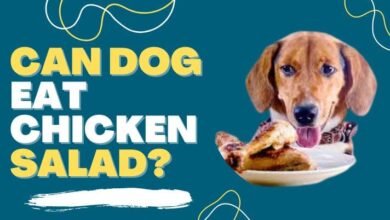
Can dogs eat hush puppies? Hush puppies are a deep-fried food made from cornmeal, eggs, and milk, often seasoned with onion and garlic, both of which can be harmful to dogs.
These tasty treats are also high in fat and calories, which can lead to digestive issues or weight gain if your dog consumes them. In this article, we’ll explore why hush puppies are risky for dogs and provide some healthier alternatives. So.lets explore briefly that- Can Dogs Eat Hush Puppies?
Toxic Ingredients in Hush Puppies
Hush puppies, although a popular snack for people, can be dangerous for dogs due to certain ingredients commonly found in them. These ingredients, such as onion, garlic, excess salt, and various spices, pose serious health risks for dogs. Even small amounts of these toxic components can cause significant harm, leading to digestive upset, poisoning, or long-term health problems. Here’s a closer look at the harmful ingredients typically found in hush puppies and why they should be avoided for your furry friend.
Onion and Garlic:
- Health Risks: Onion and garlic, whether raw, cooked, or in powdered form, contain thiosulfates, which can damage a dog’s red blood cells. This leads to hemolytic anemia, a condition where red blood cells are destroyed faster than the body can replace them. Even small amounts can cause toxic reactions, especially in certain breeds like the Japanese Chin or the Shiba Inu, which are more sensitive to these compounds.
Symptoms of Onion and Garlic Poisoning:
- Vomiting and diarrhea
- Weakness and lethargy
- Decreased appetite or refusal to eat
- Pale gums and increased heart rate
Dark-colored urine (due to red blood cell destruction)
- Prevention: Always avoid sharing foods that contain onion or garlic in any form. Even small amounts can cause damage, so it’s better to be cautious.
Excess Salt:
- Health Risks: Salt is another harmful ingredient in hush puppies. Dogs are much more sensitive to sodium than humans, and excessive salt intake can lead to several dangerous health issues. High salt levels can cause dehydration, electrolyte imbalances, and in severe cases, sodium poisoning, which can affect the nervous system and other organs. Additionally, excessive salt can worsen conditions like high blood pressure or kidney disease in dogs.
Symptoms of Salt Toxicity:
- Excessive thirst and urination
- Vomiting or diarrhea
- Tremors or seizures
- Swelling or bloating
- Increased heart rate or high blood pressure
In severe cases, coma or death
- Prevention: Limit your dog’s salt intake by avoiding salty snacks like hush puppies, chips, or processed meats. Always check the salt content of foods before offering them to your pet.
Spices:
- Health Risks: Hush puppies are often seasoned with various spices, such as chili powder, pepper, and other strong-flavored seasonings. These spices can irritate a dog’s digestive system, leading to discomfort and upset. Dogs have a much more sensitive stomach than humans, and foods with strong spices can cause gastrointestinal distress. Additionally, some spices, like cayenne pepper, can even burn or inflame a dog’s mouth and digestive tract.
Symptoms of Spice-Related Digestive Issues:
- Bloating, gas, and abdominal pain
- Excessive drooling or lip licking
- Nausea or vomiting
- Diarrhea
Decreased appetite
- Prevention: Avoid feeding your dog foods that are heavily seasoned or contain spicy ingredients. Stick to bland, dog-friendly foods to avoid digestive issues.
Why Hush Puppies Are Dangerous for Dogs
The combination of these toxic ingredients—onion, garlic, excessive salt, and spices—makes hush puppies a risky food for dogs. Even if your dog is not immediately affected by eating a small amount, repeated exposure to these ingredients can cause long-term health issues.
For safe and nutritious treats, consider offering simple, dog-approved alternatives like plain vegetables, lean meats, or commercial dog treats designed with your pet’s health in mind. Always check ingredients and consult your vet before offering any new food, especially those meant for humans. This will help ensure your dog stays healthy, happy, and safe from harmful substances found in foods like hush puppies.
Health Risks of Feeding Hush Puppies to Dogs
Feeding hush puppies to your dog may seem harmless, but these fried, greasy snacks can present several health risks due to their high-fat content, spices, and seasonings. These factors can lead to serious conditions, from digestive upset to long-term weight management problems. Here’s a breakdown of the potential health risks your dog faces if they eat hush puppies.
Pancreatitis
- What It Is: Pancreatitis is an inflammation of the pancreas, often triggered by high-fat foods. The pancreas plays a crucial role in digesting food and regulating blood sugar. When a dog consumes a fatty meal like hush puppies, it can cause the pancreas to become inflamed, leading to pain, digestive issues, and potentially severe complications.
Symptoms of Pancreatitis:
- Vomiting
- Diarrhea
- Loss of appetite
- Abdominal pain (your dog may arch their back or whine when touched in the stomach area)
Lethargy
- Prevention: Avoid feeding your dog high-fat, greasy foods like hush puppies. Stick to low-fat, balanced meals designed for dogs to help protect against pancreatitis.
Gastrointestinal Upset
- What It Is: Dogs are not accustomed to eating fried or greasy foods. When they do, it can lead to gastrointestinal (GI) upset, manifesting as vomiting, diarrhea, bloating, or abdominal discomfort. The high-fat content in hush puppies is difficult for a dog’s digestive system to process and can cause irritation.
Symptoms of Gastrointestinal Upset:
- Vomiting or retching
- Diarrhea
- Bloating or excessive gas
- Decreased appetite
Signs of discomfort, such as restlessness or pacing
- Prevention: To avoid GI issues, always stick to dog-friendly snacks that are not greasy or fried. Homemade treats or simple, plain foods like vegetables are better options for your dog’s stomach.
Obesity
- What It Is: Hush puppies are high in calories and fat, which, when fed regularly, can contribute to obesity in dogs. Obesity is a growing concern for pets, as it leads to numerous health problems such as joint pain, diabetes, and heart disease. Feeding your dog high-calorie foods like hush puppies increases the likelihood of excessive weight gain and the associated risks.
Symptoms of Obesity in Dogs:
- Noticeable weight gain or difficulty feeling your dog’s ribs
- Reduced activity or reluctance to exercise
- Shortness of breath or fatigue during walks
Excessive panting
- Prevention: Keep treats to a minimum and ensure they are healthy, low-calorie options. Regular exercise and a balanced, portion-controlled diet are key to maintaining a healthy weight.
While hush puppies may be tasty for humans, they are not a good choice for dogs. The high fat, seasonings, and calories can lead to serious health conditions, including pancreatitis, gastrointestinal upset, and obesity. To keep your dog healthy and happy, avoid feeding them these foods and stick to treats specifically designed for canine consumption. Always consult your veterinarian for safe snack alternatives and portion control advice to prevent long-term health problems.
Signs of Illness After Eating Hush Puppies
If your dog consumes hush puppies, there are several signs of illness to watch for, as they can be harmful due to the high fat content and potential toxic ingredients like onion or garlic. Understanding these symptoms is important for acting quickly if your dog begins to show signs of distress.
Lethargy or Weakness
What It Means: If your dog seems unusually tired, weak, or lethargic after eating hush puppies, it could be due to toxicity from harmful ingredients like onion or garlic. These ingredients can affect a dog’s red blood cells, leading to anemia, which makes them feel drained and weak.
Symptoms:
- Lack of energy
- Reluctance to move or play
Difficulty standing or walking
- Action: If lethargy persists for more than a few hours, contact your veterinarian. Onion and garlic poisoning can cause long-term damage if not treated quickly.
Stomach Upset (Vomiting or Diarrhea)
- What It Means: Fried foods like hush puppies are tough on a dog’s digestive system. If your dog starts vomiting, has diarrhea, or experiences bloating after eating hush puppies, it’s a sign their stomach is reacting to the greasy, heavy food. Fatty foods can irritate the gastrointestinal tract, leading to discomfort and digestive issues.
Symptoms:
- Vomiting or retching
- Diarrhea or loose stools
- Abdominal bloating or discomfort
Excessive drooling
- Action: Monitor your dog closely. If symptoms last for more than a day or worsen, or if your dog becomes dehydrated, consult your veterinarian for advice on how to manage the symptoms.
Loss of Appetite or Discomfort
- What It Means: After consuming a heavy, greasy food like hush puppies, your dog might experience discomfort that causes them to lose interest in food. Additionally, the high-fat content can cause feelings of nausea or discomfort, leading to a reduced appetite.
Symptoms:
- Refusal to eat or drink
- Whining or whining when touched around the stomach
Restlessness or pacing
- Action: If your dog refuses to eat for more than a few hours or shows signs of discomfort, consult your vet to rule out any potential complications like pancreatitis or gastrointestinal upset.
If your dog shows any of these symptoms after eating hush puppies, it’s important to monitor their condition closely. Hush puppies contain ingredients that can cause serious health issues, so acting quickly and contacting your veterinarian if symptoms persist is key to ensuring your dog’s health and safety.
What to Do If Your Dog Eats Hush Puppies
If your dog eats hush puppies, it’s important to act quickly to ensure their safety. The potential for harmful ingredients like onion or garlic, along with the high-fat content of hush puppies, can lead to serious health issues. Here’s what you should do if your dog consumes hush puppies.
Check for Harmful Ingredients
- What to Look For: The first thing you should do is check if the hush puppies contain any toxic ingredients. Onion and garlic are particularly dangerous to dogs, even in small amounts, and can cause severe health problems such as anemia.
Symptoms of Onion or Garlic Poisoning:
- Drooling
- Weakness or lethargy
- Vomiting
Loss of appetite
- Action: If you suspect the hush puppies contained onion or garlic, it’s crucial to contact your veterinarian right away for advice on the next steps.
Monitor Your Dog Closely
- Watch for Symptoms: After your dog eats hush puppies, observe them closely for any signs of illness or discomfort. Symptoms of gastrointestinal upset, such as vomiting, diarrhea, or bloating, can occur due to the greasy nature of hush puppies.
Things to Look For:
- Vomiting or diarrhea
- Abdominal discomfort or bloating
- Lethargy or unusual tiredness
Loss of appetite or refusal to eat
- Action: Keep a close eye on your dog for at least 24 hours. If symptoms worsen or if new symptoms appear, it’s time to contact your vet.
Contact Your Veterinarian
- When to Call the Vet: If you notice any concerning symptoms, especially vomiting, lethargy, or diarrhea, or if your dog consumes a large amount of hush puppies, it’s important to reach out to your veterinarian immediately. They can assess the situation, offer treatment if necessary, and provide guidance on what to do next.
What the Vet Might Do:
- Induce vomiting if necessary
- Provide fluids to prevent dehydration
Monitor for signs of toxicity or pancreatitis
- Action: Don’t wait too long to call your vet, especially if your dog has eaten a large amount of hush puppies or seems to be in distress.
Acting quickly is essential if your dog eats hush puppies. By checking for harmful ingredients, monitoring their symptoms, and seeking veterinary advice when needed, you can help protect your dog from potential health risks. Remember, it’s always best to consult with your veterinarian to ensure your dog’s safety.
Healthier Alternatives to Hush Puppies
While hush puppies may not be suitable for dogs due to their high fat and potential toxic ingredients, there are plenty of healthier alternatives that can be just as enjoyable for your furry friend. Here are some great options to consider when you’re looking to treat your dog to something safe and delicious.
Baked Cornmeal Treats
- Why They’re Healthy: Homemade baked cornmeal treats are a great alternative to hush puppies. By baking instead of frying and avoiding added oils or seasonings, you can provide a healthier snack for your dog.
What to Use:
- Cornmeal
- Water or low-sodium broth
- Optional dog-safe ingredients like pumpkin or plain yogurt
Benefits:
- Low in fat
- No harmful spices or additives
- Customizable to your dog’s taste preferences
Cooked Vegetables
- Why They’re Healthy: Vegetables are naturally low in calories and packed with essential nutrients, making them an excellent option for dog treats. Some vegetables, when cooked, provide a soft, easy-to-digest snack that your dog will love.
Best Vegetables:
- Carrots: Great for dental health and low in calories.
- Green Beans: High in fiber and vitamins.
- Sweet Potatoes: Packed with beta-carotene and great for digestion.
Benefits:
- Rich in vitamins and minerals
- Low in fat and sugar
- High in fiber, promoting digestion
Dog-Specific Treats
- Why They’re Healthy: Dog-specific treats are designed with your dog’s nutritional needs in mind. These treats are often made with natural ingredients like chicken, turkey, and oats, and are free from artificial additives or preservatives.
What to Look For:
- Treats with whole ingredients like real meat or fruits
- No artificial flavors, colors, or preservatives
- Treats that support specific health needs, like dental health or joint care
Benefits:
- Designed specifically for dogs’ dietary needs
- Convenient and portion-controlled
- No harmful ingredients like sugar or salt
Conclusion
When looking for alternatives to hush puppies, consider healthier options like baked cornmeal treats, cooked vegetables, or dog-specific treats. These snacks are not only safer but also provide nutritional benefits to support your dog’s overall health. Always choose ingredients that are appropriate for your dog’s diet to ensure a balanced and happy lifestyle.




